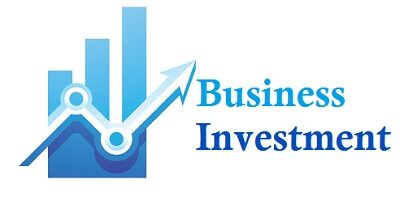
7 Personal Loan Requirements to Know Before Applying
The requirements for personal loans vary according to the lender, but financial institutions continually look at several factors, such as credit scores and income, when assessing applicants. Ensure you know the standard qualifications that need to be fulfilled and the documents required before starting your search for a loan. This knowledge may help to simplify the application process and increase your chances of being accepted for a personal loan.
There are several requirements that lenders generally take into account when deciding whether to approve your application for a Personal Loan. While the needs of different lenders may vary, it is essential to recall that there are seven standard personal loan requirements as discussed in this article.
A Brief Overview on Personal Loans
Personal loans are the type of loan you may take out to pay back your debts, for instance, debt consolidation, medical costs, fund holiday expenses, make improvements to your home, or purchase additional costly goods. Personal loans allow you to use the money instead of a loan approved explicitly for specific purposes, such as mortgages or car loans.
Personal loans give you financial flexibility and help you achieve your objectives. Still, it is important to borrow responsibly and make informed decisions based on your needs and financial capacity.
Factors to Know Before Applying for a Personal Loan
Factors to consider before applying for a personal loan are mentioned below;
1. Credit rating and history
One of the most important factors lenders consider when assessing loan applications is an applicant’s credit score. The credit score is based on factors such as the history of payments, the amount of outstanding debt, and the length of the credit history, ranging from 300 to 850. Some lenders require applicants to score at least 600 to obtain credit, but some banks will grant loans regardless of the applicant’s credit history.
2. Collateral
If you apply for a secured personal loan, the lending institution will ask you to put up your assets and collateral. The collateral usually revolves around the essential purpose of the loan when it comes to loans for houses or vehicles. Other valuable assets, such as money accounts, investment funds, office buildings, and collectibles like coins or jewels, may also be collateralized for secured personal loans.
3. Incomes and jobs:
Lenders want to ensure you have a reliable source of income to pay off the loan. They’re usually going to ask for proof of employment so that they can check your income statements, pay slips, or tax returns. Your stable income and employment history demonstrate your ability to repay the loan on time.
4.Debt-to-income Ratio:
Debt-to-income ratio (DTI) refers to a percentage of a borrower’s net monthly income that will be used to repay their monthly debt. The lenders use DTI to predict how much a prospective borrower can pay for new and existing debt. It is, therefore, desirable that the DTI be less than 36%, although some lenders will accept a highly experienced applicant with a ratio of up to 50%.
5. Documentation:
You will generally need to produce various documents in the loan application process. Identity documents, such as a driver’s license or passport, residence proof, utility bills, bank statements, and tax returns, may be included. The required documentation may differ depending on the lender and the loan size.
6. Loan purpose:
You may need to specify the loan type during the loan application procedure. Although personal loans are generally helpful for various purposes, such as consolidation of debts, home improvements, and medical expenses, some lenders may offer certain restrictions or specific types of credit products that can be tailored to particular needs.
7. Employment stability:
The lenders prefer those who have a stable employment history. They can assess the length of your current career and check that you held previous employment. Your loan application can be strengthened by demonstrating the consistency of your employment history.
For several reasons, your personal loan application may be refused by your lender. Your credit score may need to be corrected or have a high DTI. Also, based on factors such as income or employment stability and other outstanding debt, you may have applied for more credit than the bank believes you can repay.
Conclusion
It must be noted that because each lender has different criteria and assessment procedures, loan approval does not guarantee compliance with those requirements. In addition, factors such as your creditworthiness and the loan amount may affect the loan terms and conditions, such as the interest rate and repayment period. It is advisable to conduct a thorough survey and compare lenders to identify the best option that fits your economic situation and needs as soon as you apply for a Personal Loan. To get an instant cash loan online, you can go ahead with the Fibe personal loan app to get a hassle-free loan online with no paperwork and at affordable interest rates.


